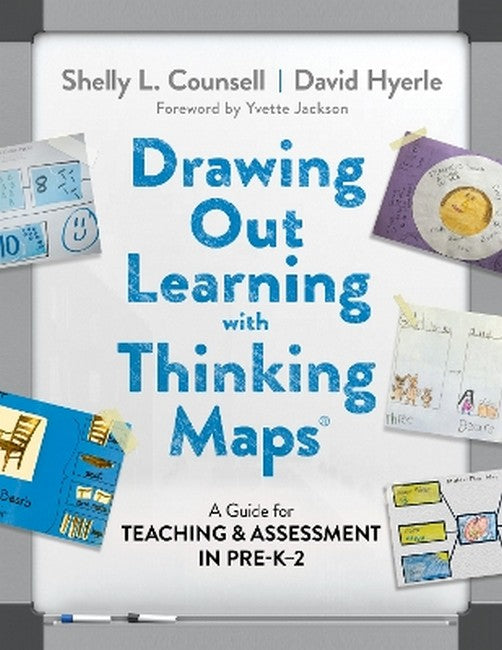Shelly L. Counsell is a retired associate professor of early childhood education, an early childhood consultant, and an Early Years Columnist with NSTA's Science & Children. David Hyerle is a bestselling author, developer of the Thinking Maps (R) model, and president of Thinking Schools International.
Request Academic Copy
Please copy the ISBN for submitting review copy form
Description
Contents List of Figures ?vii List of Tables ?xi Foreword Yvette Jackson ?xiii Acknowledgments ?xv Introduction: Can I Use Thinking Maps With Young Children? Yes, You Can! ?1 Thinking Maps: Integrating Three Types of Visual Tools ?2 Why Early Childhood? ?3 Thinking Maps as a Learning, Teaching, and Assessment Framework ?4 1. ?Bringing Thinking Maps to Life ?9 Learning Trajectories and Developmental Progressions ?9 The Five Critical Attributes of Thinking Maps ?12 TMaps Tap Into Prior Knowledge and Experience ?14 Thinking Maps Exemplifies Universally Designed Learning (UDL) ?15 Conclusion ?21 2. ?Thinking Maps Across Developmental Domains ?22 Developmentally Appropriate Practice ?22 Domain 1-Cognitive Development ?24 Domain 2-Socioemotional Development ?28 Domain 3-Physical and Healthy ?29 Domain 4-General Learning Competencies ?29 Conclusion ?30 3. ?Thinking Maps Across Academic Content Areas ?31 Thinking Maps Inspire Talking, Reading, and Writing ?32 Thinking Maps Support Logical-Mathematical Reasoning ?42 Thinking Maps Promote Scientific Thinking, Reasoning, and Inquiry ?44 Engineering Design and Technology With Thinking Maps ?54 Social Studies Instruction and Thinking Maps ?55 Related Early Childhood Approaches and Curricula ?57 Conclusion ?59 4. ?Thinking Maps Promote Democratic Learning Communities With Full Community Membership ?60 Thinking Maps Promote Responsive, Democratic Learning ?60 Conclusion ?71 5. ?Thinking Maps Provide Authentic Formative Assessment and Documentation ?72 A Brief Historical Perspective of Standardized Testing ?72 Classroom Assessments ?74 Conclusion ?80 6. ?The Science Underlying Thinking Maps With Young Children ?81 Research and Theoretical Foundation for Thinking Maps ?81 Executive Function ?81 Self-Regulation ?84 Habits of Mind ?85 Alignment With Standards ?87 Conclusion ?89 Appendix: Glossary ?91 References ?93 Index ?105 About the Authors ?111

